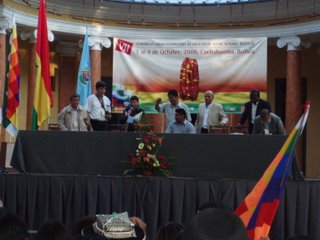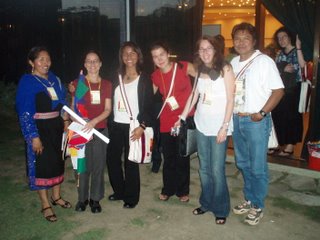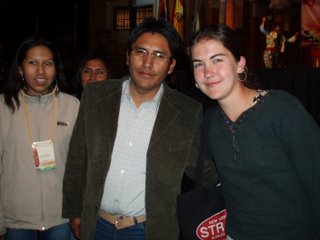Cochabamba´s Right on the March
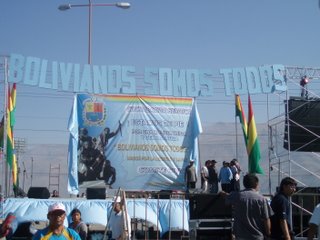
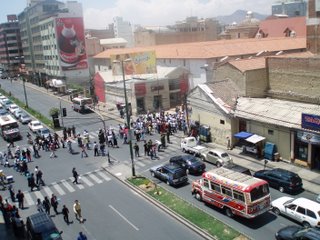
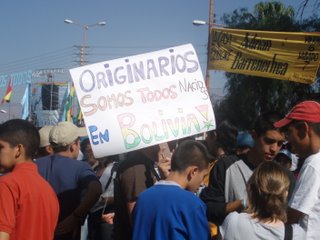
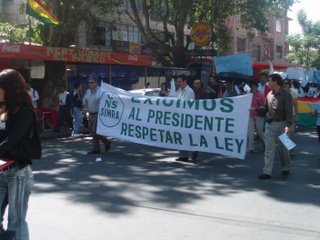
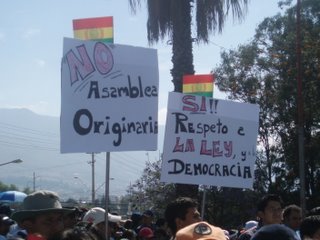
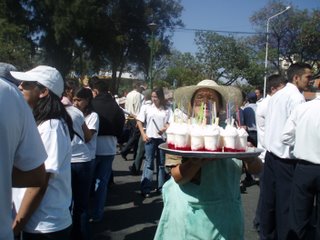
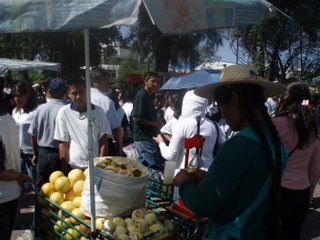
The Comité Cívico (Civic Committee) of Cochabamba called a "Marcha de Cochabambinidad"
for Thurday, October 5 in order to call on President Evo Morales and his party MAS (Movimiento al Socialismo, Movement Towards Socialism) to "follow the law." The slogan of the rally and march, as can be seen in the photos above, was ¨Todos Somos Bolivianos," or "We Are All Bolivians." To understand the cynicism behind these slogans, a bit of explanation is needed. According to the Comité Civico and the Bolivian conservative parties Podemos, MNR, and Unidad Nacional, the Constituent Assembly that has been elected to rewrite the country´s constitution should operate according to a 2/3rds majority. The law that brought the Constituent Assembly into being does indeed require a two-thirds majority--for the passage of the final constitution, not for each provision added to the proposal along the way. The Constituent Assembly has been deemed "originaria" in order to redress the historic disenfrachizement of Bolivia´s majority indigenous population, signifying that the Assembly is charged with creating a democratic political structure that empowers this majority. The right-wing parties Podemos, MNR, and Unidad Nacional have used the two-thirds debate to stall any the Assembly´s progress, and want to continue to be able to use such a voting structure to exercise an effective veto against the MAS majority. The vast majority of those who attended Thursday´s rally and march were wealthy and on the pale side. By declining to show up, Cochabambinos demonstrated that the Comité Cívico, which is not elected by all Cochabambinos, does not represent "Cochabambinidad." If it hadn´t been for the 4 busloads of people from Santa Cruz (a city 10 hours away) and the full mobilization of the city´s private high schools and colleges for the march, it would have been quite small. Despite progressive sounding demands such as democracy and equality and calling for a march of the "multitude", the wealthy mestizo and white marchers were served fresh orange juice and salteñas by the indigenas that have always worked on the bottom in Bolivia´s economy.
